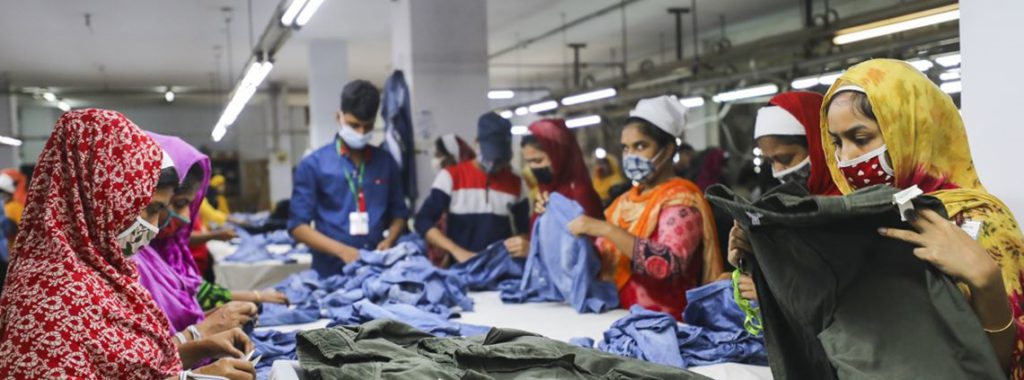Garment workers wages fell by 38% due to Covid

Garment workers were paid on average 38% less than their usual wage at the height of the coronavirus pandemic, a report has found.
The report, by campaign group Clean Clothes Campaign, estimated wages in some parts of India had been halved in March, April and May.
This was as a result of order cancellations by apparel brands, unpaid leave, and state-sanctioned wage cuts during the Covid-19 crisis, the research indicated.
The report looked at the impact of Covid on the garment industries in Bangladesh, Cambodia, India, Indonesia, Myanmar, Pakistan and Sri Lanka.
Clean Clothes Campaign estimated wages lost by garment workers worldwide, excluding China, for the months March, April and May could amount to between $3.19bn and $5.79bn.
The report said while some governments provided direct financial support to garment workers or established legal decrees to prevent factories from terminating employees, others adopted less favourable policies.
“For example, Cambodia postponed the payment of workers’ biannual indemnity pay in June and did not require employers to provide workers with legally mandated compensation and notice before closing their factories. In Bangladesh, the government required factories to pay only less than three quarters of workers’ wages during the month of April,” it said.
Khalid Mahmood, of Labour Education Foundation in Pakistan, said: “Many workers in the garment and textile industry have not been paid or have been underpaid because of order cancellations and Covid-19 lockdowns. As these workers were already living on poverty wages, they had not been able to save anything before the pandemic hit.
“The wage gaps caused by the crisis mean that workers are not able to feed their families properly, they are not able to pay for school fees of their children, or pay for medical expenses and that many of them are in debt. Most migrant workers had to go back to their villages and now it is becoming even more difficult for them to get back to their jobs and survive in big cities.”
The campaign group has called on apparel brands and retailers to ensure all workers in their supply chains receive back payments of the full monies they are owed and commit to a public wage assurance.
“This would require brands to commit to soliciting funds, provide direct contributions and work together with other stakeholders to ensure that all workers making and handling their products receive the wages they are owed,” it added.
Meanwhile, online retailer ASOS has called on its third-party brand partners with a manufacturing footprint in the UK to boost transparency within their supply chains.
ASOS has asked its brand partners to take a number of steps by the end of the year, including publicly disclosing a list of manufacturing sites in their supply chain, mapping and maintaining visibility of all parts of their UK garment manufacturing supply chain, and identifying risks within their supply base and strategies to mitigate them.
The move comes as retailers such as Boohoo and Quiz were criticised for using supplier factories in the UK paying workers as little as £3 an hour.

